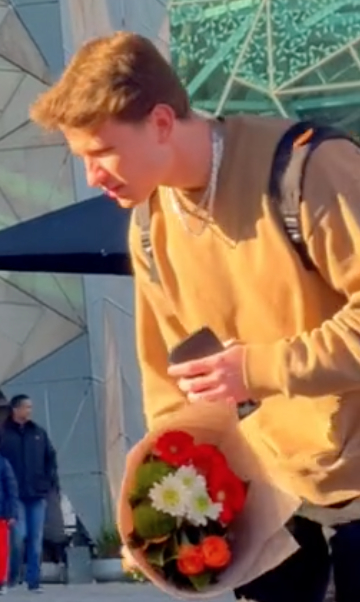Kindness is a type of behaviour marked by sympathy, benevolence, generosity, consideration without expecting praise or reward in return.
So dictionaries say.
But what if you are motivated by pursuit of praise? And what if you do receive something in return – not from the subject of your kindness, but from sponsors?
Random acts of kindness have become a social media phenomenon, trending with hashtags and followers galore, the virtual world captivated by watching strangers do kind things for others and whole channels dedicated to discussing them.
When kindness is in the spotlight, it can never be all bad.
Those among us who believe in the power of positivity feel a little heartened that in an unpleasantly topsy-turvy world, goodness is at last getting attention too.

But the trend has tipped over a rather sharp edge. And kindness has been left behind.
A few weeks ago, Melbourne TikTok content creator Harrison Pawluk filmed himself, with cutesy music overlaid, giving a bunch of flowers to an older woman sitting alone.
The video went viral and has now been viewed more than 65 million times.
While his other videos have been popular, the reason for the manic viewing of this one is that the woman did not see the attention as kind.
She told media that at the time, her quiet had been disrupted and she felt patronised – as if all older women should be tickled pink by the gift of flowers from a stranger.
Now, she is upset at being the subject of global pity and that she was given no say in the exchange or its publication.
Despite the seemingly warm and fuzzy intent, the video is not truly an example of kindness.

Kindness would be connecting with that stranger, sharing a smile or maybe offering a hand. It would have been showing a little human caring instead of just capturing a marketable moment.
Pawluk and many like him operate similarly: he pretends he needs someone to hold the flowers while he puts on his jacket or ties his shoe, then walks away. The person can only feel a bit weird, not particularly cared about.
Other gestures can be quite lovely: in another video Pawluk pays for one man’s lunch and another man’s clothes, for example.
Do you have an opinion to share? Submit a Letter to the Editor with your name and suburb at Sunshine Coast News via: news@sunshinecoastnews.com.au.

But the exchanges are purpose-designed to create content for sharing, so instead of Pawluk’s acts being simply refreshing in a selfish and sad world, they have become about sponsors and attention – lots of both.
Four years ago, University of British Columbia psychology researchers John-Tyler Binfet and Camilla Enns identified the notion of “quiet kindness” through a series of experiments.
While they found this to be far less prevalent than planned or responsive kindness, they found these acts – for the good of another and characterised by their stealth-like quality and the desire of the initiator to remain anonymous – occurred more than people might expect.
If that was to spread like wildfire, for real instead of virtually, what a truly wonderful world it would be.
Dr Jane Stephens is a UniSC journalism lecturer, media commentator and writer. The views expressed are her own.





